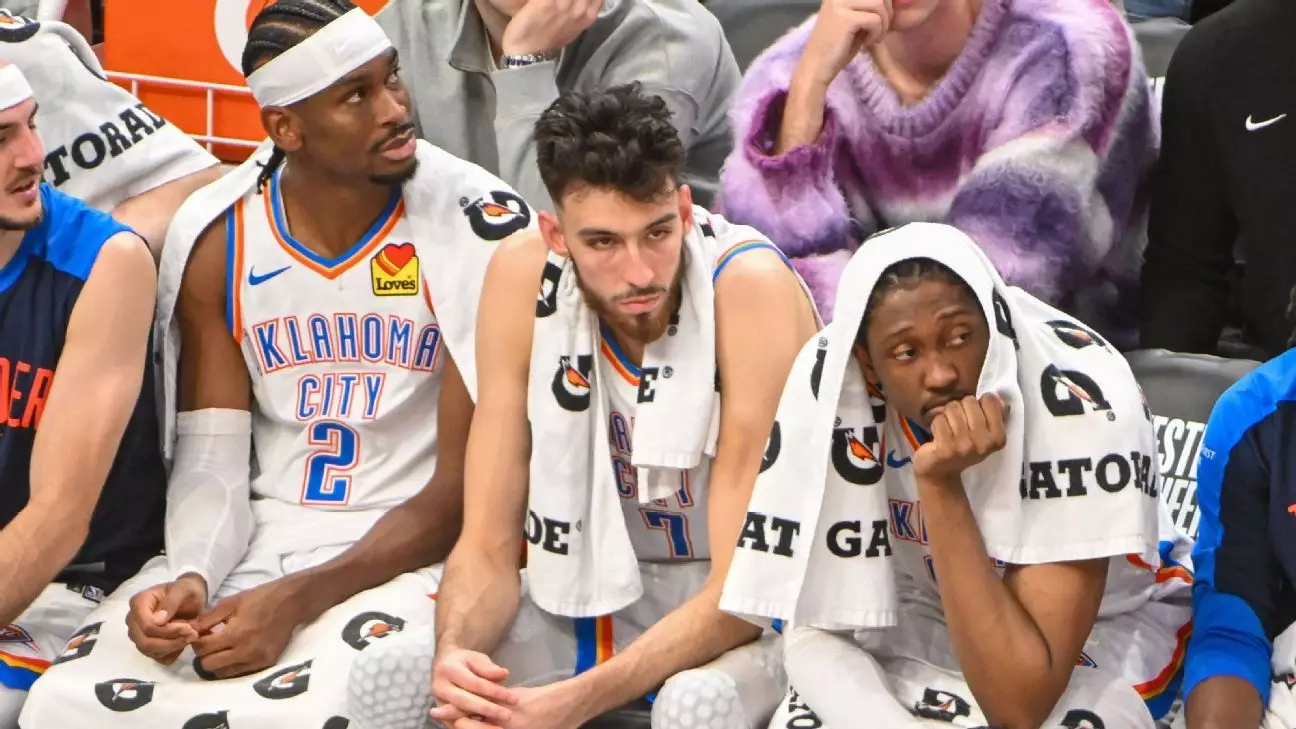For the Oklahoma City Thunder, the latest playoff debacle against the Minnesota Timberwolves was nothing short of a brutal wake-up call. Losing by a staggering 42 points, a monumental collapse for any playoff team, the Thunder must grapple with this harrowing experience not just as a loss but as an alarming signpost of vulnerabilities that could haunt their postseason aspirations. The Game 3 defeat, which ended 143-101, showcased the unnerving chasm between expectation and performance, throwing into stark relief the flaws in a team that many had labeled as a rising contender.
This loss wasn’t just a bump in the road; it served as a stark reminder that success in sports is not guaranteed. Thunder power forward Chet Holmgren’s blunt assessment—“Wherever they wanted to go, they got there”—resonates as a damning indictment of his team’s defensive shortcomings. If the Thunder had any illusions of a seamless playoff run after a solid start, those dreams were thoroughly obliterated at the hands of a team that decisively established their dominance.
Failure to Respond
Coach Mark Daigneault voiced a sentiment that has echoed through Oklahoma City for years: “We were just never able to give ourselves any traction.” For the Thunder, finding “traction” means breaking through the relentless physicality and pressure applied by their opposition—a skill they dramatically lacked on that fateful night. The Timberwolves came out swinging, connecting their punches with a ferocity and determination that sent the Thunder sprawling.
Even the emergence of Shai Gilgeous-Alexander, a player who had been a beacon of hope throughout the season, could not salvage this disaster. Finishing with just 14 points, his abysmal shooting performance stood in jarring contrast to his average of 34.5 points from the two opening games. The concerning fact is not just that Gilgeous-Alexander faltered, but rather how easily he was stifled by the Timberwolves’ improved defensive scheme. If superstar players cannot thrive when the lights shine brightest, it raises fundamental questions about the team’s readiness for playoff pressure.
The Defensive Collapse
The Thunder’s defensive prowess—lauded as their hallmark through much of the regular season—disappeared like a mirage against Minnesota. Allowing a staggering 57.3% shooting from the field and 50% from beyond the arc signifies more than just a bad night; it reveals a systemic failure, a gaping wound that can be exploited time and again. Oklahoma City’s defensive identity was not just bruised but shattered, leaving them vulnerable in ways that must be addressed if they hope to progress deeper into the postseason.
This challenge is not insurmountable. However, the urgency to recalibrate may not be as palpable within the confines of the locker room as it needs to be. “We take the ball out of the net for the majority of the game,” Gilgeous-Alexander noted, and therein lies the crux of the issue. In a game that requires an innate understanding of rhythm and flow, the Thunder found themselves stifled and scrambling, unable to forge the offensive opportunities that stem from defensive success.
Beyond the Loss: A Test of Character
Disheartening though it may be, this game represents an opportunity for growth. The Thunder’s reaction to adversity will define their season moving forward. “You get punched, you get back up,” Gilgeous-Alexander stated, embodying a spirit that resonates deeply within the fabric of competitive sports. The character shown in the wake of defeat is as critical as any game strategy or player statistic.
Facing an uphill battle, the Thunder must channel their disappointment into tangible resolve. Losses such as these can either fracture a team or galvanize it, pushing players to their limits and binding them closer together. As they prepare for the next game, their fate hinges not on the defeat itself, but rather on their commitment to this challenge—a test of resolve, character, and the ability to rise from the ashes of failure. The Thunder may have fallen flat this time, but history shows us that the journey of a champion is filled with trials, and how they respond can set the tone for their legacy.

